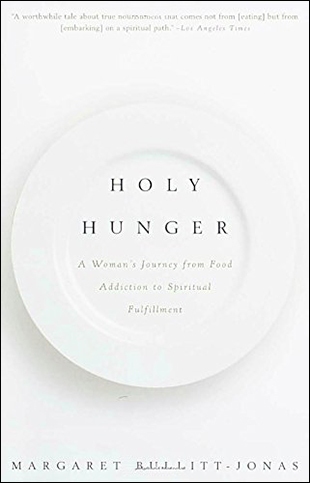"As I look back over our lives — my father's, my mother's, my own — I can see plainly that this is a story of desire: desire sometimes gone awry, sometimes stifled and repressed, sometimes fulfilled, sometimes set free. It's no easy business, learning to befriend our desires, to get past our lesser appetites in order to find what we really long for," writes Margaret Bullitt-Jonas. An Episcopal priest, she serves as Associate Rector of All Saints Parish, Brookline, Massachusetts, and as a lecturer at the Episcopal Divinity School. Holy Hunger is about compulsive overeating, an addiction the author calls a ferocious criminal act against the self.
As one of the four children of an alcoholic professor of English at Harvard University and a reclusive Radcliffe-educated mother, Bullitt-Jonas describes growing up in a family "so muted by depression and anxiety, so constrained by perfection, so riddled with addiction." She used food as "a key prop in my inner drama, a source of solace and strength when I felt cut off from the people around me."
Bullitt-Jonas reveals her eventual decision to enter Overeaters Anonymous and her struggle to come to terms with the spiritual yearning behind her addiction. The most lyrical and memorable passages of this well-written memoir outline the author's courageous and compassionate attempts to love, forgive, and understand her parents.
